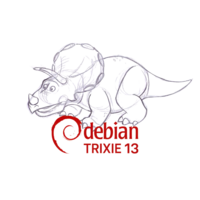With Samba version 4.22, support for “reflink copies” has been extended. Reflink stands for Reference Links: a feature that significantly speeds up the copying of large files by creating only references to data blocks on supporting file systems.
The feature was developed by the Samba team at SerNet GmbH in close cooperation with storage manufacturer FAST LTA, who commissioned the implementation. The aim was to fulfill an essential step so that storage systems such as FAST LTA's Silent Bricks can also support Veeam's Fast Clone feature for SMB access under Linux.
Technical background
“Reflink copies” use features of modern file systems such as Btrfs, XFS, ZFS, or ReFS to make data duplication more efficient. With SMB-based access, clients can use SMB protocol features for “reflink copies,” provided that the server and its file system support this. Previously, support in Samba was limited to the Btrfs file system.
In Samba 4.22, general support is now enabled for all file systems that support the “reflink copies” functionality – by using the generic Linux ioctl FICLONERANGE. This enables the use of backup software such as Veeam, which regularly creates complete or differential copies of large amounts of data, with file systems other than Btrfs, ZFS, and XFS. Thanks to the extension in Samba, Linux-based SMB backends – such as those provided by FAST LTA with the Silent Bricks storage system – can now also support Veeam's Fast Clone. This significantly improves performance for so-called “forever incremental” and “synthetic full” backups. The result is a reduction in storage requirements, I/O load, and backup times.
Upstream tops proprietary
The technical implementation was carried out by the Samba team at SerNet lead by Ralph Böhme, who has been working on central components of the project for many years as a member of the Samba Core Team. The code has been fully integrated upstream and is now part of the official Samba release series 4.22.
“For us, it is an important signal when manufacturers such as FAST LTA specifically focus on the further development of open source components,” says Ralph Böhme. “Such contributions not only strengthen the functionality of individual systems, but also the sustainability and openness of the overall architecture.”
Christian Rogg, lead developer at FAST LTA, is enthusiastic about the collaboration with SerNet: “It started out as just an idea. The implementation with SerNet was extremely professional, and the results are impressive. Veeam users now save up to 50% in storage capacity and backup time with Fast Clone Support with Silent Bricks.”
Joint development initiatives
As part of its development services, SerNet offers specific enhancements and customizations of Samba – especially for manufacturers, OEMs, and operators of complex infrastructures. The aim of such collaborations is to combine individual requirements with open source practice: Developments are designed transparently, implemented with technical expertise, and merged into the official Samba source code base for the benefit of Samba users worldwide
Contact us for more development opportunities with SerNet!
